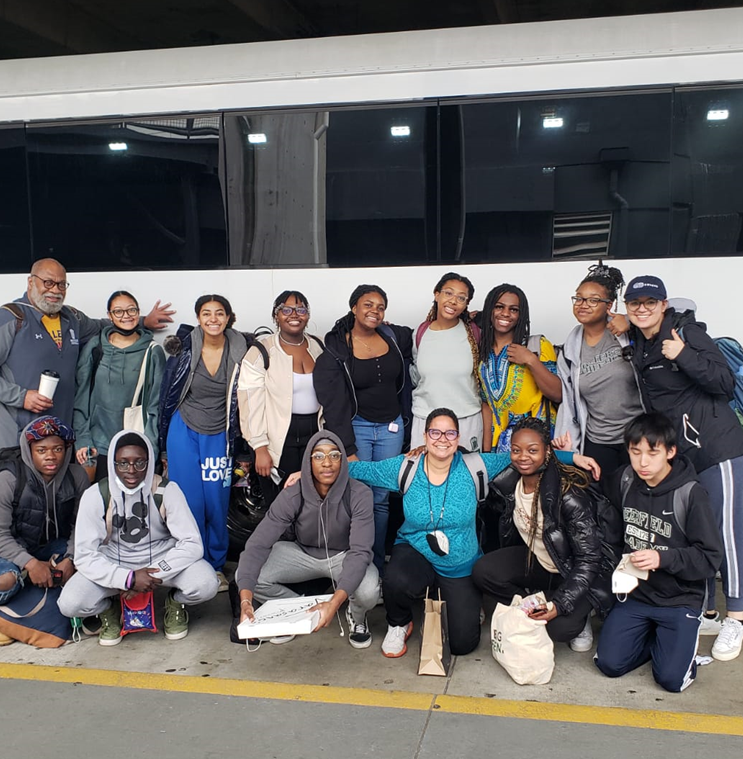Thirteen students and two faculty trip leaders began their travels to the American South this morning. For the next seven days, students will learn about activism and leadership through the lense of the American Civil Rights movement. Prior to their departure the group remained on campus for a weekend of pre-travel activities. Cameron Iizuka ’22 and Ephraim Tutu ’24, share some reflections from this weekend.
Cameron Iizuka ’22:
For the past two days, our group (going to the American South) has met with activists and influential changemakers on local and national levels. Yesterday, we met virtually with Toni Smith-Thompson, a former college basketball player and now-activist who was one of the first people to protest the national anthem, even before Colin Kaepernick. Beyond discussing what it meant for her to protest in 2003 (after a rise of right-wing Nationalism with the entering of the Iraq War), she also gave light to what protest means in America today, how to organize on a collectivist level, and what allyship means for Black and non-Black people alike. Then, we watched the documentary “On Their Ground” that illuminated the painful reality of the School-to-Prison pipeline through School Resource Officers (cops) in schools. In particular, it looked to the stories of two Black girls, Shakara and Niya, who were harmed at the hands of an SRO in Columbia, South Carolina named Ben Fields, and also to the woman who came from New York, Miss Vivian, to rally support. Today we met with Miss Vivian over Zoom and got to speak with her about allyship, finding co-conspirators, youth activism, and intersectional advocacy within the Black community. Later today, we’ll virtually meet with lawyer and voting rights activist Bryan Sells.
Ephraim Tutu ’24:
Today we had a leadership seminar. We had a call with V. V which taught me a lot. “Build it and they will come.” “It’s not about you, it is through you”. So today I learned about how to be a vessel. I learned that leaders must create a platform for change to happen. V spoke about how in a conversation you can only try and inform, you can’t really change someone’s mind if they don’t want their minds to be changed. I learned in terms of support I need to stop generalizing people I want to support. I must see black women as individuals with different needs, I can not expect all black women to have the same needs and want the same kind of support. I also saw and got the idea from V, that all people have something to offer. I can’t have malice intentions as a leader and can’t have things against anyone because that person I don’t like can and does have something to offer, weather that be a different perspective, or just a way to help me fix a problem.
